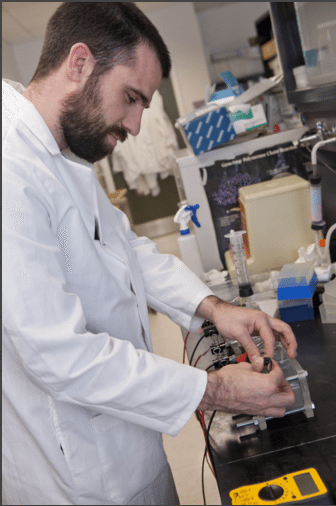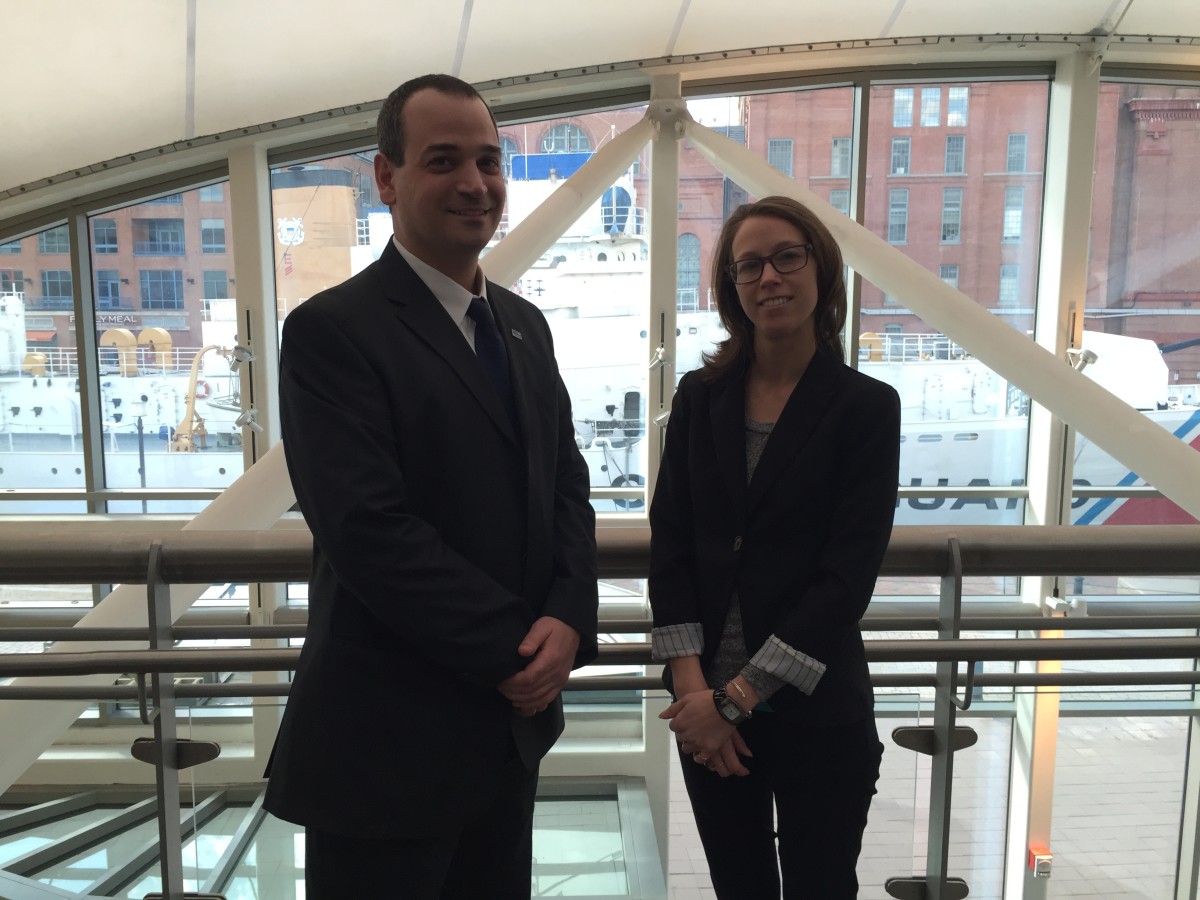Inner Harbor is the latest site of a new Baltimore incubator.
With Harbor Launch, the Institute of Marine and Environmental Technology (IMET) has designated areas of office and lab space specifically for biotech and environmental startups at Columbus Center (the big building with the sails on it near Pier Five).
Startups vary in size, of course, but IMET Assistant Director Nick Hammond said the office space could accommodate as many as 15 companies.
There are also four separate wet labs, ranging in size from about 80-200 square feet. We often hear about a lack of wet-lab space in the city, so Harbor Launch’s startup-sized offerings could be a huge help.
In the incubator, IMET’s Lindsay D’Ambrosio said there is still office space for startups, and all four labs are currently available.

Along with the physical space, the incubator also has new people involved looking to foster entrepreneurship. D’Ambrosio recently became incubator manager after a stint at the National Science Foundation. Harbor Launch also brought on Steven Davey as entrepreneur-in-residence.
The incubator is also situated within two larger entities. First, there’s IMET itself. The University System of Maryland’s research institute is a joint program of the University of Maryland Center for Environmental Science, University of Maryland Baltimore and UMBC. It’s home to an aquaculture research center, which is the home of research on bluefin tuna and Mediterranean sea bass. Helping entrepreneurship is one of IMET’s aims, but the incubator is not the only piece of the “culture” that Hammond said IMET is looking to create.

An early Harbor Launch tenant shows how it might all fit together.
Ryan Powell of Manta Biofuel invented the startup’s process for converting algae to crude oil during doctorate studies at IMET. When his studies were complete, Manta Biofuels licensed the technology from the University of Maryland Center for Environmental Science. Now, the company is an incubator member. Along with the facilities, the continued access to faculty are important to Powell, he said. Nifty model, huh?

Already convening the work of a trio of institutions, IMET is now working to bring together resources for entrepreneurs. Monthly office hours, for instance, have representatives from each of the institutions on hand, as well as TEDCO and IP specialists.
Columbus Center also has other offerings. There’s space for companies outside of the incubator, such as former BioPark startup PathSensors. And IMET recently added to its staff in order to book a big events space.
And the whole building overlooks the harbor. Just sayin’.
IMET’s Harbor Launch incubator offers sweeping views, serious science







